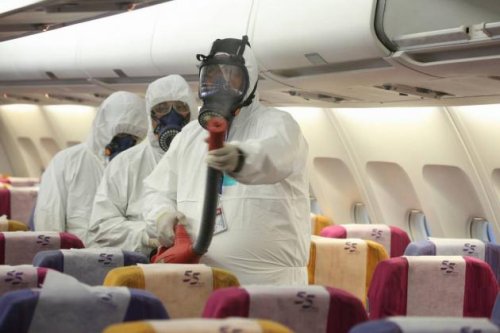Thailand On Red Alert For MERS Threat
THAILAND is swinging into full alert against the killer Middle East Respiratory Syndrome (MERS) threat, which has already had serious impacts on South Korea, compelling the country to cut its interest rate in a bid to soften the blow to its economy already burdened by slack demand.
“It will be the seventh disease on the list [of dangerous communicable diseases],” Dr Surachet Satitramai, acting permanent secretary of the Public Health Ministry, said yesterday.
Thailand has seen no MERS cases yet, but Surachet said the move was necessary to facilitate efforts to control the deadly disease if it was contracted here.
Public Health Minister Rajata Rajatanavin will be asked to sign the order for the inclusion of MERS on the danger list in one or two days.
With Rajata’s endorsement, MERS will become the latest disease to go on the list after the Ebola virus disease. The five other diseases on the list are cholera, plague, severe acute respiratory syndrome (Sars), smallpox and yellow fever.
South Korea has been hit by a crisis after more than a hundred cases of MERS.
The organiser of a medical conference, which attracts 20,000 participants from around the world including 4,000 South Koreans, has consulted the Public Health Ministry about what precautionary measures should be taken. The conference runs from today until June 14 in Thailand.
Dr Kumnuan Ungchusak, a specialist at the Disease Control Department, said body-temperature measurement devices would be installed at the entrance to the venue and MERS guideline leaflets would be handed out to participants.
“Anyone with unusually high body temperature won’t be allowed to enter the venue,” he said.
Kumnuan downplayed concerns about the South Korean participants, pointing out that South Korea had also imposed measures to control MERS and all travellers must undergo MERS screening before leaving South Korea.
About 4,000 South Koreans fly to Thailand every day, he added.
South Korean authorities yesterday reported 14 new MERS cases.
The central bank of Asia’s fourth-largest economy surprised the market by shaving 25 basis points of the policy rate, taking it to a record low of 1.5 per cent as a pre-emptive move to cushion the impact of MERS on the economy.
Worry in South Korea about the disease has been reflected across the region with dozens of suspected cases being tested in Hong Kong, though none confirmed, and many thousands of people cancelling trips to South Korea.
South Korea’s outbreak, with 122 cases and nine deaths, is the most serious outside Saudi Arabia and began last month when a 68-year-old South Korean businessman brought the disease back from a trip to the Middle East.
He was diagnosed with MERS on May 20 and all subsequent infections have been traced to him, and happened in health facilities.
South Korean President Park Geun-hye has put off a trip to the United States to deal with the crisis amid the rising number of cases every day.
Economic policy-makers were already under pressure to stimulate the economy as weak global demand and the strong Korean currency won had dented exports and discouraged spending by consumers and companies. One positive sign was a fall in the number of South Korea’s schools and universities that have closed.
The total number of cases dipped to 2,431 yesterday from about 2,700 the previous day after a joint team of experts from the World Health Organisation (WHO) and South Korea recommended that schools be reopened, as they were unlikely to spread the disease.
However, Thai travellers do not seem to be panicking, as only 10 per cent of trips to South Korea have been cancelled.
“Thais can still travel to Korea but need to cautious and monitor developments about the disease. Korean tourists can visit Thailand as usual,” Suparerk Soorangura, president of the Thai Travel Agents Association, said recently.
Kasikorn Research Centre reported that 437,500 Thais are expected to travel to South Korea this year, down from the earlier projection of 480,000 and a drop of 8.9 per cent from last year.
Source: The Nation


